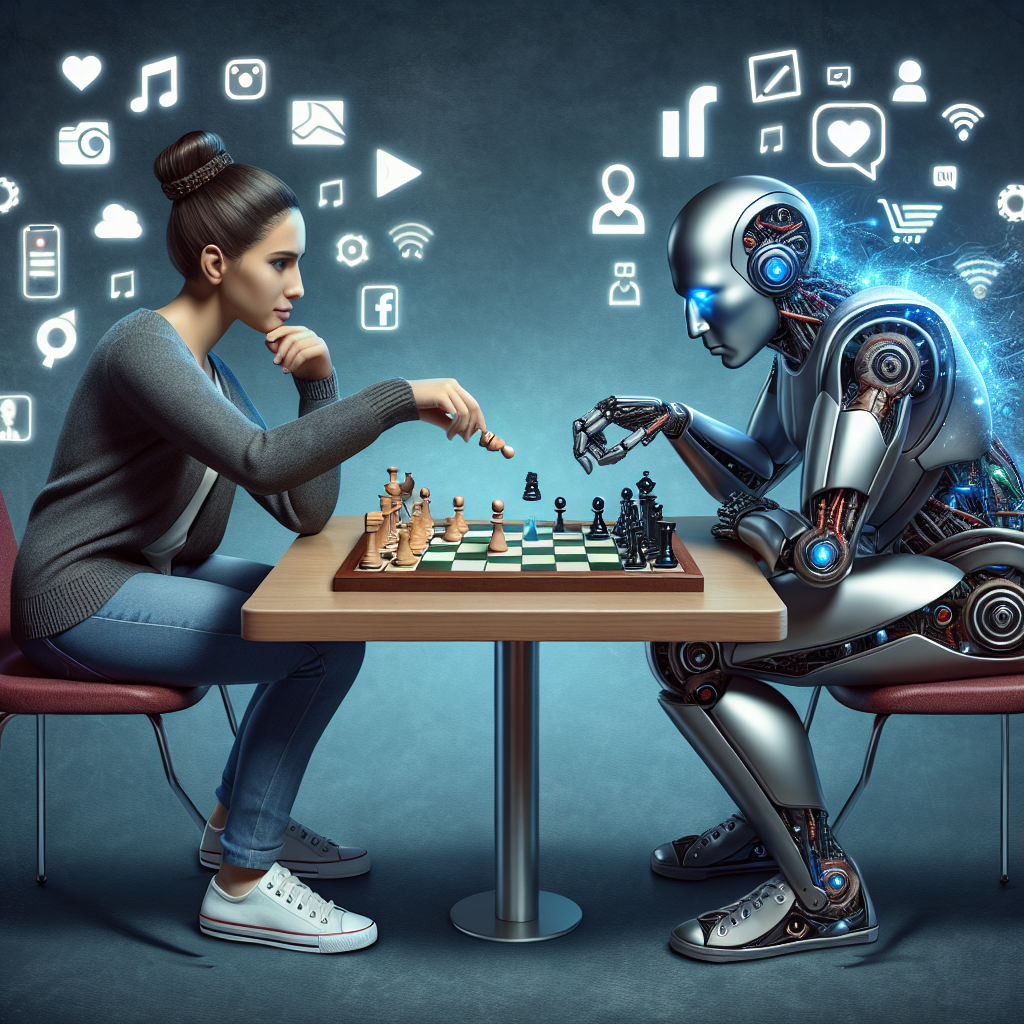In today’s digital age, social media has become an integral part of our daily lives. From connecting with friends and family to staying updated on current events, social media platforms have revolutionized the way we communicate and interact with one another. With the rise of artificial intelligence (AI) technology, social media has evolved even further, changing the landscape of online communication. However, as AI continues to advance, the question arises: who is winning the social media game, AI or humans?
AI on Social Media
Artificial intelligence has made a significant impact on social media platforms, with algorithms and machine learning being used to analyze user behavior and preferences. This allows social media companies to deliver personalized content to users, increasing engagement and retention rates. AI is also used to moderate content, flagging inappropriate or harmful posts and comments to ensure a safe and positive user experience.
One of the key advantages of AI on social media is its ability to process vast amounts of data quickly and efficiently. This allows for real-time analysis of user interactions, enabling companies to make data-driven decisions to improve their platforms. AI can also automate repetitive tasks, such as scheduling posts, responding to messages, and analyzing engagement metrics, freeing up human resources to focus on more strategic initiatives.
Another area where AI excels on social media is in advertising and marketing. AI algorithms can target specific demographics and interests, increasing the likelihood of users engaging with ads and making purchases. This level of personalization has proven to be highly effective in driving conversions and increasing revenue for businesses.
Human Element on Social Media
While AI has undoubtedly transformed the social media landscape, the human element remains crucial in maintaining authenticity and building genuine connections with users. Humans bring creativity, empathy, and emotional intelligence to social media interactions, enhancing the overall user experience.
Human moderators play a vital role in ensuring that social media platforms remain safe and inclusive for all users. They can identify and address issues that AI may not be able to detect, such as hate speech, harassment, and misinformation. Human moderators also provide a personal touch to user interactions, offering support and guidance when needed.
Influencers and content creators are another essential aspect of the human element on social media. These individuals have built loyal followings based on their unique perspectives, creativity, and authenticity. While AI can help identify trends and optimize content, it is the human touch that resonates with audiences and fosters genuine connections.
The Challenge of Misinformation
One of the biggest challenges facing social media platforms today is the spread of misinformation. With the rise of fake news, conspiracy theories, and propaganda, it has become increasingly difficult to discern fact from fiction online. AI tools have been developed to combat misinformation, flagging false or misleading content and providing fact-checking resources to users.
However, the battle against misinformation cannot be won by AI alone. Humans play a critical role in fact-checking, critical thinking, and media literacy. By educating users on how to spot fake news and encouraging them to verify information before sharing, we can collectively combat the spread of misinformation on social media.
The Future of Social Media
As AI technology continues to evolve, the future of social media will undoubtedly be shaped by the interplay between AI and humans. While AI can automate tasks, analyze data, and personalize content, it is the human element that adds authenticity, creativity, and emotional intelligence to social media interactions.
Moving forward, social media companies must strike a balance between AI and human input to create a positive user experience. By harnessing the power of AI to optimize algorithms and enhance user engagement, while also valuing the human touch in content creation, moderation, and community building, social media platforms can continue to thrive and evolve in the digital age.
FAQs
Q: Can AI completely replace humans on social media?
A: While AI has made significant advancements in analyzing data, personalizing content, and automating tasks on social media, the human element remains essential in building genuine connections, fostering creativity, and maintaining authenticity. AI and humans can complement each other, working together to enhance the user experience on social media platforms.
Q: How can AI help combat misinformation on social media?
A: AI tools can be used to flag false or misleading content, provide fact-checking resources, and analyze user behavior to identify trends in misinformation. However, humans play a critical role in fact-checking, critical thinking, and media literacy. By working together, AI and humans can combat the spread of misinformation online.
Q: What is the future of social media in relation to AI and humans?
A: The future of social media will be shaped by the interplay between AI and humans. While AI can optimize algorithms, analyze data, and personalize content, it is the human touch that adds authenticity, creativity, and emotional intelligence to social media interactions. By striking a balance between AI and human input, social media platforms can continue to evolve and thrive in the digital age.

